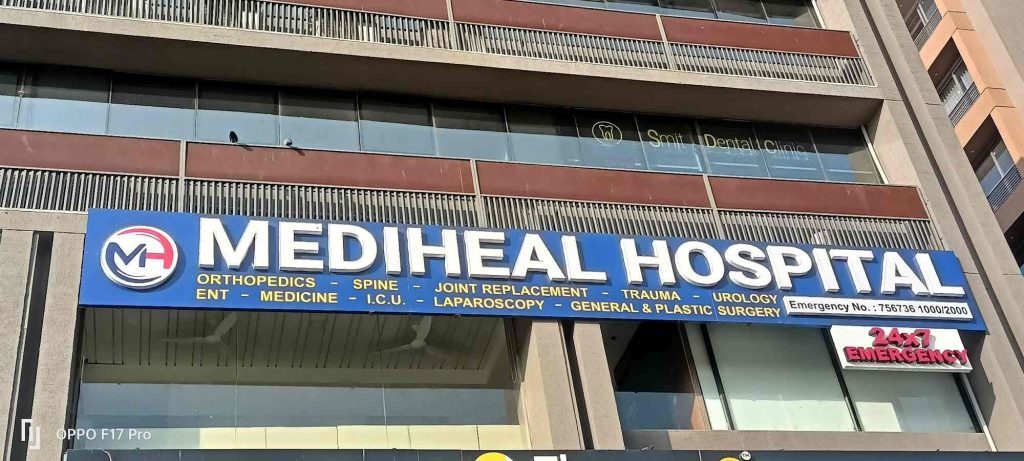The National Assembly’s Departmental Committee on Health has launched a comprehensive 80-day public inquiry into allegations of unethical kidney transplant procedures at Mediheal Hospital’s Eldoret branch.
The move follows mounting public concern and a recent exposé implicating the hospital in possible breaches of professional ethics, transplant tourism, and the commercialization of organ donations.
The probe comes in the wake of a series of damning claims by the Kenya Renal Association (KRA), which in a statement dated May 3, 2024, raised red flags over a growing trend of organ trade involving vulnerable donors and foreign recipients at the private hospital.
The statement cited testimonies suggesting coercion, lack of proper informed consent, and inducements to donors, in direct contravention of both Kenyan law and global ethical standards on organ transplants.
Addressing a press conference at Bunge Towers on Tuesday, Seme MP Dr. James Nyikal, who chairs the committee, said the inquiry aims to examine the legality, ethical compliance, and oversight of kidney transplant services at Mediheal, and to recommend necessary legal or policy reforms to safeguard the integrity of the country’s healthcare system.
“This is a serious matter that touches on the dignity of life and the reputation of Kenya’s medical profession. We intend to get to the bottom of it,” Dr. Nyikal said.
“We are going to ask critical questions. Were the procedures at Mediheal in line with the Health Act and Human Tissue Act? Was there evidence of organ commercialization? Were donors fully informed, or were they deceived or coerced into donating?”
Mediheal Hospital, one of East Africa’s leading private healthcare providers, has been offering organ transplant services for over a decade.
However, scrutiny intensified over the past two years amid growing unease about transplant procedures at its Eldoret facility.
The allegations suggest the hospital may have become a hub for so-called “transplant tourism”—a practice where foreign patients receive organs from local donors under questionable ethical and legal circumstances.
The committee will also investigate the role of foreign nationals, both as transplant recipients and as part of the hospital’s medical team.
Questions have arisen over whether proper immigration and licensing procedures were followed for foreign doctors, and whether recipient-donor relationships, especially in cross-border cases, were thoroughly vetted.
“Did Mediheal conduct due diligence in verifying the relationships between donors and recipients, especially where foreign nationals were involved?” Dr. Nyikal posed.
“Were these matches medically appropriate, and did they meet ethical standards?”
Following growing pressure from medical professionals and civil society, the Ministry of Health in December 2023 constituted a fact-finding mission to audit transplant activities at Mediheal.
The multidisciplinary team included transplant surgeons, ethicists, the Kenya Blood Transfusion and Transplant Services (KBTTS), the Kenya Medical Practitioners and Dentists Council (KMPDC), and the Kenya Renal Association.
Their mandate was to assess the clinical, legal, and ethical compliance of transplant practices at the hospital.
The matter escalated further on April 17, 2025, when Health Cabinet Secretary Hon. Aden Duale suspended all transplant services at Mediheal hospitals nationwide and appointed an Independent Expert Committee to audit all kidney transplants conducted there over the past five years.
He also suspended two senior officials from the Kenya Blood Transfusion and Transplant Services—Dr. Maurice Wakwabubi and Dr. Everlyne Chege—to protect the integrity of the ongoing investigations.
The National Assembly inquiry, running parallel to the executive-led audit, will also examine the effectiveness of regulatory bodies such as the Kenya Tissue and Transplant Authority, the Ministry of Health, and the KMPDC.
It will investigate whether there were prior complaints or red flags, how those were handled, and whether any lapses in oversight allowed unethical practices to persist.
The committee’s terms of reference include a thorough evaluation of oversight mechanisms, including licensing, monitoring, and auditing of transplant activities.
Lawmakers will scrutinize whether existing legal frameworks are robust enough to prevent exploitation and abuse in the organ transplant sector.
“Have our institutions failed in their mandate to protect Kenyans from exploitation?” Dr. Nyikal asked.
“We want to know if the Kenya Medical Practitioners and Dentists Council and the Ministry of Health acted swiftly on any warnings they might have received.”
To ensure broad public engagement and transparency, the committee will invite oral and written submissions from members of the public, medical professionals, and affected patients.
Physical inspections of the hospital and relevant facilities are also planned. The committee may review patient records (with confidentiality safeguards), donor and recipient declarations, and transplant approval documents.
Engagements with international ethics and transplant experts are expected to offer comparative insights on best practices and regulatory models.
Central to the committee’s mandate is the identification of systemic, institutional, or legal gaps that may have allowed the alleged violations to occur.
It will explore possible reforms to Kenya’s transplant regulations and propose sanctions or disciplinary action for individuals or institutions found culpable.
The committee is also tasked with restoring public trust in Kenya’s organ donation and transplant framework.
With the country striving to build a robust universal health system under the Universal Health Coverage agenda, any scandal of this magnitude not only threatens patients’ safety but could also erode public confidence in the medical profession.
“As we conduct this inquiry, our aim is not just to punish wrongdoing, but to strengthen our systems,” Dr. Nyikal emphasized.
“We want to ensure that Kenya’s health sector is safe, ethical, and internationally respected.”
Email your news TIPS to Editor@Kahawatungu.com — this is our only official communication channel


